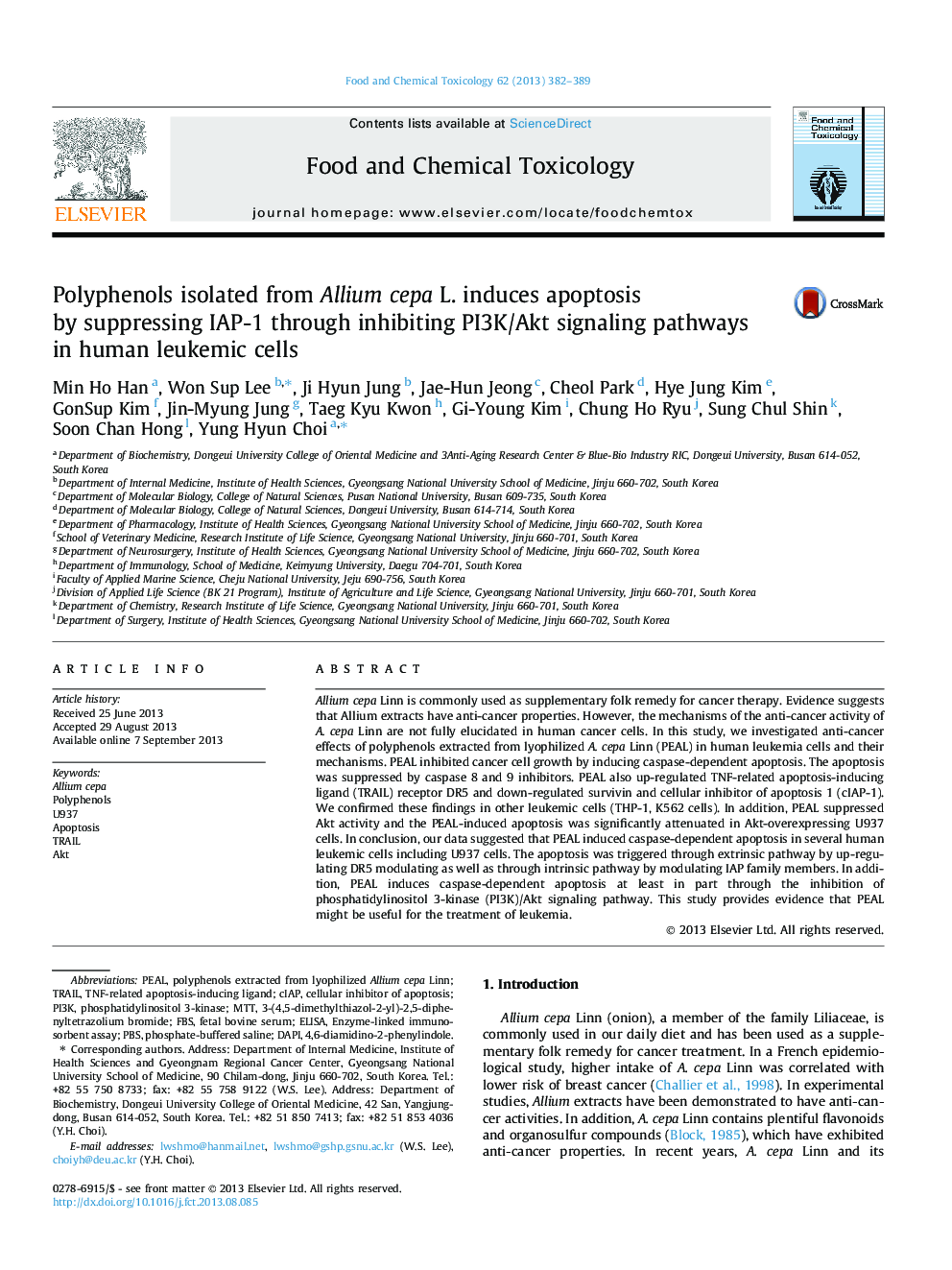| Article ID | Journal | Published Year | Pages | File Type |
|---|---|---|---|---|
| 5850372 | Food and Chemical Toxicology | 2013 | 8 Pages |
Abstract
Allium cepa Linn is commonly used as supplementary folk remedy for cancer therapy. Evidence suggests that Allium extracts have anti-cancer properties. However, the mechanisms of the anti-cancer activity of A. cepa Linn are not fully elucidated in human cancer cells. In this study, we investigated anti-cancer effects of polyphenols extracted from lyophilized A. cepa Linn (PEAL) in human leukemia cells and their mechanisms. PEAL inhibited cancer cell growth by inducing caspase-dependent apoptosis. The apoptosis was suppressed by caspase 8 and 9 inhibitors. PEAL also up-regulated TNF-related apoptosis-inducing ligand (TRAIL) receptor DR5 and down-regulated survivin and cellular inhibitor of apoptosis 1 (cIAP-1). We confirmed these findings in other leukemic cells (THP-1, K562 cells). In addition, PEAL suppressed Akt activity and the PEAL-induced apoptosis was significantly attenuated in Akt-overexpressing U937 cells. In conclusion, our data suggested that PEAL induced caspase-dependent apoptosis in several human leukemic cells including U937 cells. The apoptosis was triggered through extrinsic pathway by up-regulating DR5 modulating as well as through intrinsic pathway by modulating IAP family members. In addition, PEAL induces caspase-dependent apoptosis at least in part through the inhibition of phosphatidylinositol 3-kinase (PI3K)/Akt signaling pathway. This study provides evidence that PEAL might be useful for the treatment of leukemia.
Related Topics
Life Sciences
Agricultural and Biological Sciences
Food Science
Authors
Min Ho Han, Won Sup Lee, Ji Hyun Jung, Jae-Hun Jeong, Cheol Park, Hye Jung Kim, GonSup Kim, Jin-Myung Jung, Taeg Kyu Kwon, Gi-Young Kim, Chung Ho Ryu, Sung Chul Shin, Soon Chan Hong, Yung Hyun Choi,
